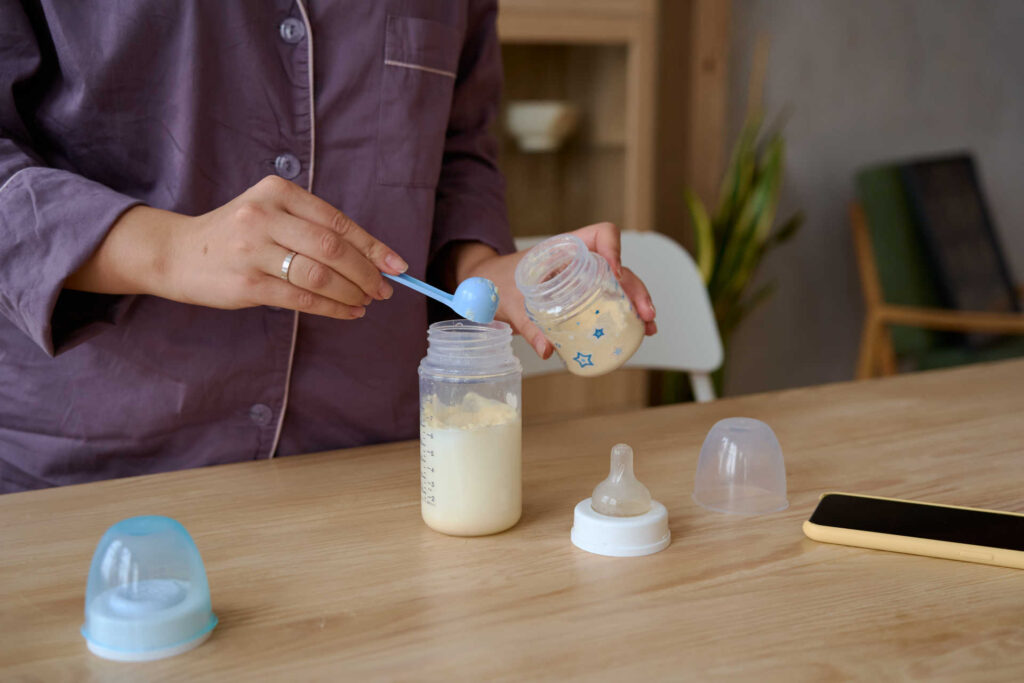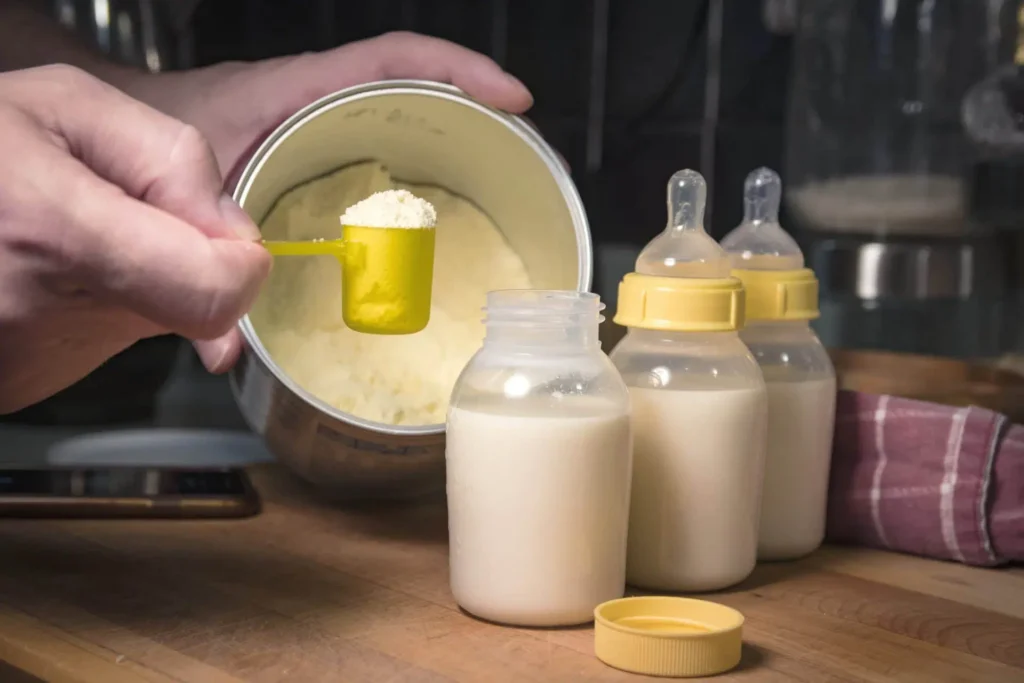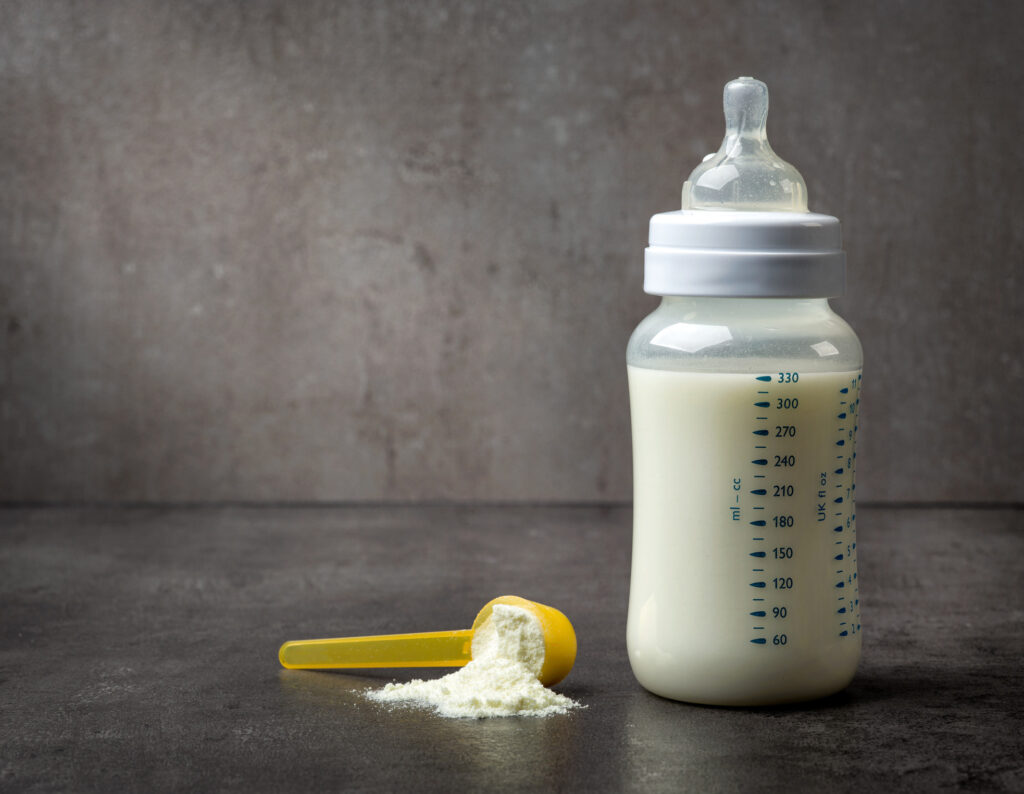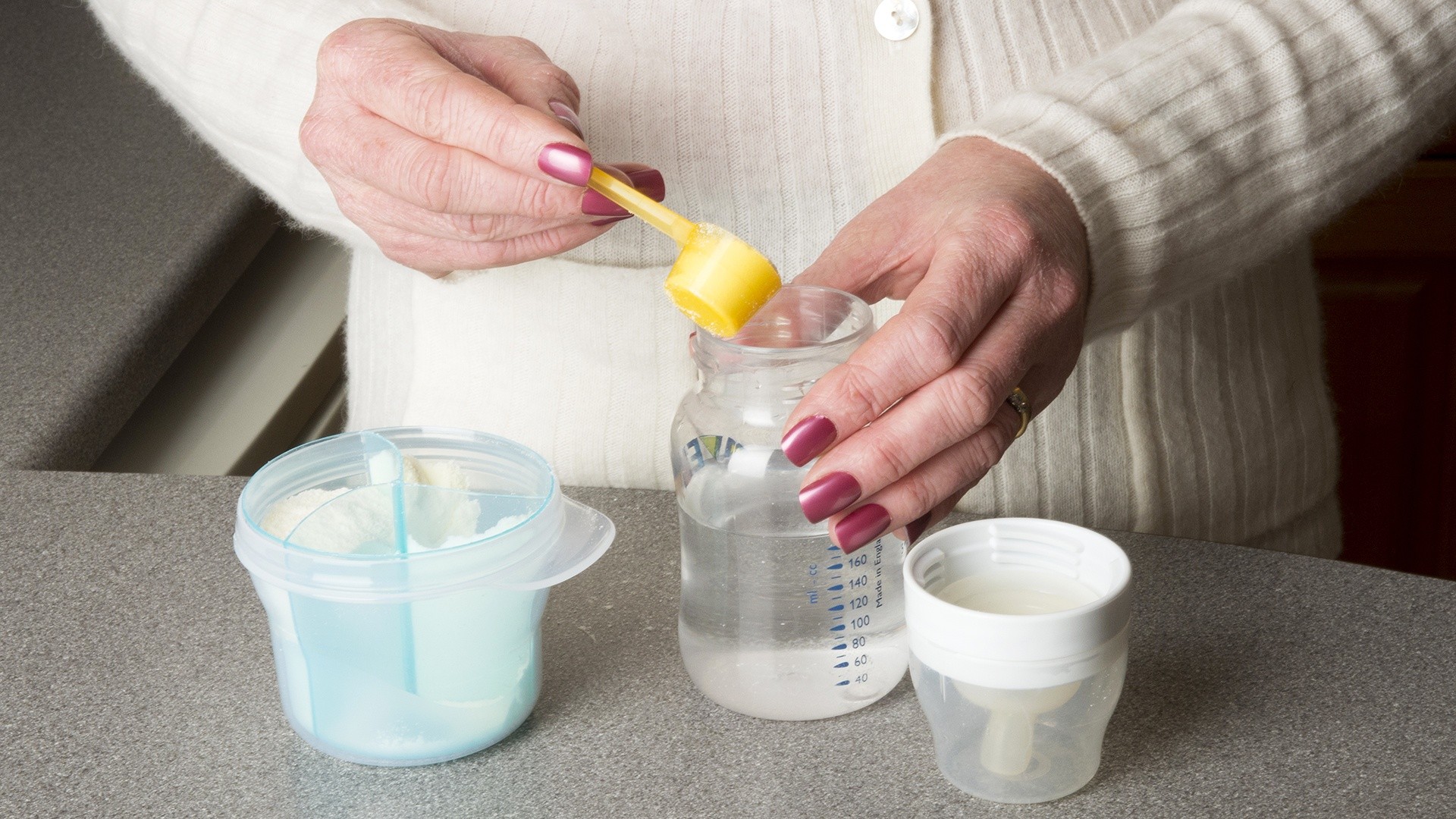Boiling water for newborns can be used to make formula milk or to sterilize feeding equipment. The NHS recommends boiling water and then allowing it to cool before using it to make up formula feeds for babies, as it kills any bacteria present. This is especially important for newborns, as their immune systems are still developing and they are more vulnerable to infections.
Always follow the specific guidelines provided by healthcare professionals or your pediatrician for preparing formula or sterilizing equipment for your newborn.
How to Boil Water for Newborns?

Boiling water for newborns is important to ensure that it’s safe for them to consume or use for preparing formula. Here’s how you can do it:
Choose clean water
If you’re using tap water, consider its source. If your tap water comes from a municipal water supply, it’s typically treated to meet safety standards.
However, if you have well water or live in an area with known water quality issues, consider having your water tested or opting for distilled water.
Distilled water undergoes a purification process that removes impurities and minerals, making it a safe choice for newborns. You can find distilled water in most grocery stores.
When using tap water, let the faucet run for a few seconds before collecting the water to flush out any stagnant water from the pipes.
Wash hands and utensils
Proper handwashing is crucial to prevent introducing harmful bacteria or contaminants into the water. Use warm water and soap, and scrub your hands thoroughly for at least 20 seconds, making sure to clean under your fingernails and between your fingers.
Use clean utensils and equipment when handling water for newborns. Wash bottles, nipples, measuring cups, and any other equipment with hot, soapy water, and rinse them thoroughly before use.
Boil the water
Use a clean pot or kettle to boil the water. Stainless steel or glass pots are good choices because they’re easy to clean and won’t leach any harmful substances into the water.
Measure the water accurately using a clean measuring cup or pitcher. Follow the guidelines provided by your pediatrician or formula manufacturer to determine the correct amount of water needed for formula preparation.
Place the pot or kettle on the stove and turn the heat to high. Keep the lid off the pot to allow steam to escape, which helps prevent the water from boiling over.
Let it boil
Once the water reaches a rolling boil, where large bubbles rapidly break the surface, start the timer. Boiling water for at least one minute kills most harmful pathogens, including bacteria, viruses, and parasites.
If you live at a high altitude, water boils at a lower temperature due to decreased atmospheric pressure. In such cases, it’s recommended to boil the water for three minutes to ensure complete sterilization.
Cool the water
After boiling, remove the pot or kettle from the heat source and set it on a heat-resistant surface. Avoid placing it on a cold surface, as this can cause rapid cooling, leading to potential contamination.
Allow the water to cool naturally to a safe temperature. Avoid blowing on the water or using a fan to cool it down, as this can introduce airborne contaminants.
Use a clean thermometer to check the temperature of the water. It should be around room temperature (about 98°F or 37°C) before using it for your baby.
Use or store
Once the water has cooled to a safe temperature, you can use it immediately for preparing formula, mixing with breast milk, or diluting juices for your newborn.
If you’re not using the boiled water right away, transfer it to a clean, covered container and store it in the refrigerator. Label the container with the date and time of boiling for reference.
Discard any unused boiled water after 24 hours to ensure freshness and safety.
What Are NHS Guidelines for Newborn Care?

The National Health Service (NHS) in the United Kingdom provides comprehensive guidelines for newborn care, covering various aspects of infant health, feeding, safety, and well-being. Here’s an overview of some key areas covered by NHS guidelines for newborn care:
Feeding
The NHS encourages exclusive breastfeeding for the first six months of a baby’s life, as breast milk provides all the nutrients and antibodies a baby needs for healthy growth and development. They provide support and guidance for mothers who choose to breastfeed, including advice on positioning and latching.
For mothers who cannot or choose not to breastfeed, the NHS provides guidance on safe formula feeding practices, including instructions for preparing and storing infant formula.
Sleeping
The NHS provides guidelines to reduce the risk of sudden infant death syndrome (SIDS) by promoting safe sleep environments for babies. This includes placing babies on their back to sleep, using a firm and flat mattress, and avoiding soft bedding, pillows, and toys in the crib.
Immunizations:
The NHS recommends a schedule of routine vaccinations for newborns to protect them from serious infectious diseases. These vaccinations typically begin at two months of age and continue through childhood.
Health and well-being
The NHS advises parents to schedule regular checkups with a healthcare provider to monitor their baby’s growth and development and address any concerns.
The NHS provides information on common signs and symptoms of illness in newborns, such as fever, lethargy, poor feeding, and unusual crying patterns. They advise parents to seek medical attention if they notice any concerning symptoms.
Safety
The NHS provides guidance on selecting and using appropriate car seats for newborns and infants to ensure their safety during travel. The NHS offers advice on creating a safe environment for babies at home, including measures to prevent accidents and injuries, such as using safety gates, securing furniture, and keeping small objects out of reach.
Parental support
The NHS offers support and guidance to new parents during the postnatal period, including advice on self-care, coping with sleep deprivation, and managing the emotional challenges of parenthood.
The NHS provides resources for parents, including parenting classes and support groups, to help them navigate the challenges of caring for a newborn and connect with other parents.
How to Address Wind in Newborns?

Addressing wind in newborns can be challenging, but there are several strategies you can try. First and foremost, after feeding, make sure to burp your baby by gently patting or rubbing their back. This can help release trapped gas in their stomach. Additionally, if you’re breastfeeding, consider feeding your baby more frequently but with smaller amounts to prevent them from taking in too much air. Ensuring that your baby is in an upright position while feeding can also minimize the intake of air.
Another option is to talk to your pediatrician about using over-the-counter gas drops designed for infants, which can help break down gas bubbles in the stomach. Lightly massaging your baby’s tummy in a clockwise motion and gently moving their legs in a cycling motion can also help relieve gas.
Providing plenty of supervised tummy time when they’re awake can aid in digestion and relieve gas. It’s important to check your feeding technique to ensure your baby is latched properly while breastfeeding or using a bottle to prevent them from swallowing excess air. If you’re formula-feeding, consult with your pediatrician about switching to a formula specifically designed to reduce gas and fussiness.
Finally, provide comfort to your baby by holding them upright or rocking them gently to soothe any discomfort caused by gas. If you notice persistent discomfort or excessive crying despite trying these methods, it’s essential to consult with your pediatrician for personalized advice and to rule out any underlying medical issues causing your baby’s discomfort.
FAQs
How do I release my baby’s gas?
Gently massage your baby’s tummy in a clockwise motion.
How to help a gassy baby in NHS?
Offer small amounts of cooled boiled water if they’re thirsty, following NHS guidelines.
What is the best remedy for wind in babies?
Providing gentle tummy massage or bicycle leg movements can help relieve wind.
Do colic babies fart a lot?
Colic babies may experience increased gas and fussiness, but farting frequency varies.
How to burp a newborn in NHS?
Hold your baby against your shoulder or sit them upright, gently patting or rubbing their back until they burp, following NHS guidance.
Final Words
It’s important to follow the NHS guidelines to keep newborns safe and healthy. By boiling water for formula feeds and sterilizing feeding equipment, you can reduce the risk of infections.
Remember to pay attention to your baby’s feeding techniques and environment to help ease wind discomfort. By following these simple steps, you can ensure the safety and well-being of your newborn.



